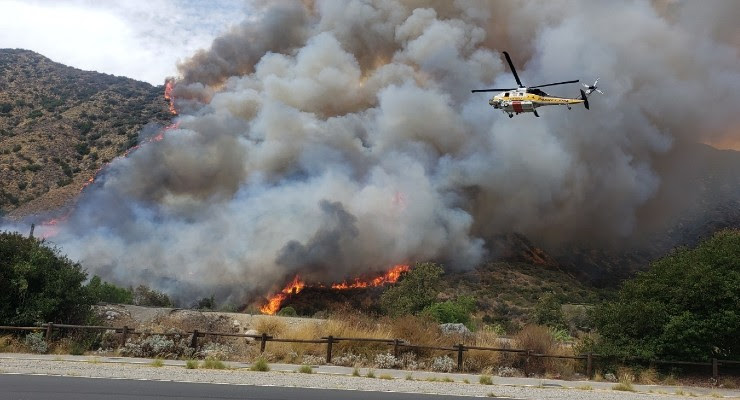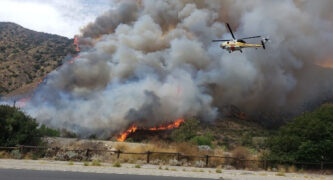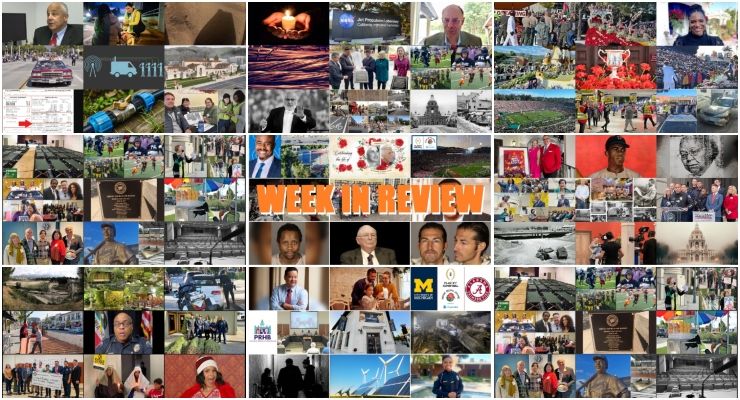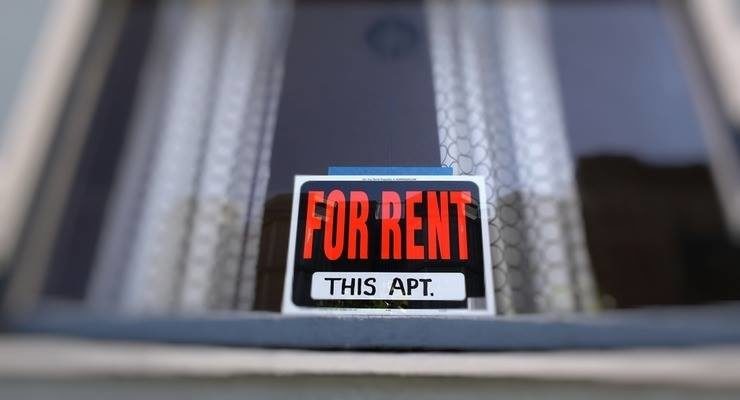
Firefighters battle the Ranch Fire in the Angeles National Forest north of Azusa on Aug. 13, 2020. (Credit: Caltrans District 7)
Governor Newsom has vetoed Assembly Bill 2330, a measure designed to accelerate wildfire preparedness activities in California. The bill, introduced by Assemblymember Chris Holden, who represents Pasadena, sought to establish a streamlined process for local agencies to implement wildfire prevention projects while safeguarding endangered species in fire hazard severity zones adjacent to urban areas.
“This issue is urgent and ongoing. Right now, we are witnessing the impact that wildfires have on our California communities with the bridge fire that is impacting both San Bernardino and Los Angeles Counties,” said Assemblymember Holden. “We must continue developing new ways to get ahead of these disasters and my hope is that despite this not being the outcome that we fought hard and advocated for, the legislature will push forward in finding solutions.”
AB 2330 would have allowed local agencies to submit wildfire preparedness plans to the Department of Fish and Wildlife for review within 90 days, inquiring if an incidental take permit or other permits are needed. The legislation proposed a 45-day processing timeline for completed incidental take permit applications and offered approved plans a 5-year permit for wildfire preparedness activities in fire hazard severity zones.
The bill had received unanimous, bipartisan support with zero no votes in both houses of the California Legislature. However, Governor Newsom vetoed it, with concerns over increased ongoing costs cited as a factor in the decision.
Chris Nigg, Fire Chief of La Verne and President of the LA Area Foothill Fire Chiefs Association, expressed disappointment with the decision.
“This bill represented a critical step toward ensuring the safety and well-being of our communities and first responders. By prioritizing support for our fire services through expedited permitting for wildfire preparedness activities, AB 2330 would have enhanced our ability to respond to the growing challenges posed by wildfires adjacent to residential neighborhoods. This veto is a setback for public safety, our communities, and preventing the next wildfire calamity,” Nigg said.
Proponents of the bill argued it would have provided greater certainty for local agencies to advance wildfire preparedness projects while mitigating impacts on endangered, threatened, and candidate species in fire-prone areas adjacent to urban centers.
The legislation also included a provision requiring the Department of Fish and Wildlife to publish an annual summary of these efforts on their webpage, promoting transparency in wildfire prevention initiatives.
Despite the setback, Assemblymember Holden and supporters plan to reintroduce the bill, continuing their efforts to enhance California’s wildfire preparedness capabilities.



















